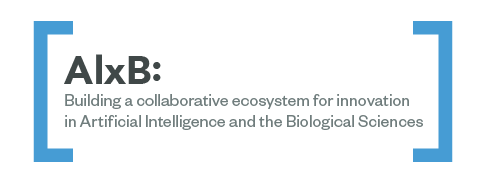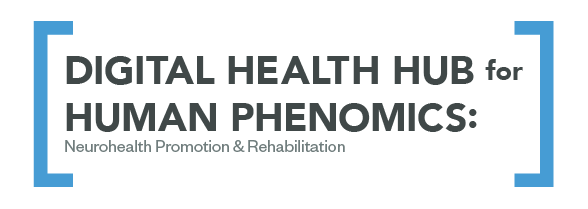2021-2022 Creativity Hubs Finalists Announced
Research is in an era of unprecedented discovery and innovation in natural, social, and biomedical sciences. As problems become more complex, researchers with divergent expertise need to collaborate to form new knowledge, generate new ideas, pursue groundbreaking research, and solve difficult problems.
To that end, the Office of the Vice Chancellor for Research is pleased to announce the six pre-proposal winning teams for this year’s Creativity Hubs seed funding competition. These interdisciplinary teams — representing the UNC College of Arts and Science and five professional schools (including 21 departments), 13 research centers or institutes, and four external partners — highlight the effectiveness of uniting problem-solvers to tackle societal challenges. Creativity Hub winning projects are expected to lead to sustainable, large-scale extramural funding and commercial opportunities.
The projects advancing to the next round of Creativity Hubs funding are

Team: Jason Stein, School of Medicine, PI; Rose Xavier, School of Nursing, co-PI; Adriana Beltran, School of Medicine, co-PI; Wubin Bai, College of Arts & Sciences, co-PI; Joseph Piven, Mark Shen, and Jessica Girault, Carolina Institute for Developmental Disabilities
Combining expertise in both clinical and basic sciences, the team proposes to address several key technical barriers in using cortical brain organoids for personalized medicine, focusing primarily on psychiatric disorders such as schizophrenia and autism.

Team: Corbin Jones, College of Arts & Sciences, PI; Stan Ahalt, RENCI, co-PI; Chris Bizon, RENCI; Brian Strahl, Jeremy Simon, and Piotr Mieczkowski, School of Medicine; Bob Duronio, College of Arts & Sciences; Alex Tropsha, Eshelman School of Pharmacy
With the potential to revolutionize AI for biosciences, AIxB takes a fresh look at Artificial Intelligence (AI) technologies through the lens of biology to develop more inspired, interpretable, and innovative AI. The team will pilot solutions using a biological example that reflects the larger problem: cracking the yeast histone code.

Team: Adam Kiefer, College of Arts & Sciences, PI; Johna Register-Mihalik and Jason Mihalik, Matthew Gfeller Center; Gedas Bertasius & David Pfennig, College of Arts & Sciences; Rob Hubal, Eshelman School of Pharmacy; Dave Pincus, Chapman University; Bob Dieterle, Eshelman Institute for Innovation; Christopher Shea, Gillings School of Global Public Health; Kevin Carneiro, School of Medicine; Peter Liao, Office of Technology Commercialization; André Williams, Arts & Sciences Foundation; Maurici López-Felip, Kognia Sports Intelligence; Jonathan Lee, Intel Corporation
This proposal seeks to revolutionize the current standard of concussion management through proactive, comprehensive identification of factors affecting brain and behavioral health. The team proposes to develop a novel AI-driven precision phenomics platform that will enable the real-time assessment of biopsychosocial, cognitive, and behavioral phenotypes as they relate to neurohealth in athletes and veterans prior to and following concussion.

Team: Noah Kittner, Gillings School of Global Public Health, PI; Angel Hsu, Richard Smith, and Cassandra Davis, College of Arts & Sciences; Jason West, Gillings School of Global Public Health; Iheoma Iruka, Frank Porter Graham Child Development Institute
This project integrates research at the forefront of climate science, energy systems, and public health equity to develop a scalable framework around urban heat, electric grid infrastructure, and the health equity nexus. The team will explore changing demand for air conditioning, increased exposure to heat, and estimated access to cooler buildings and public spaces in NC.

Team: Samantha Schilling, School of Medicine, PI; Paul Lanier, School of Social Work, co-PI; Lisa Zerden and Emily Putnam-Hornstein, School of Social Work; Kristen Hassmiller-Lich and Leah Frerichs, Gillings School of Global Public Health; Mark Holmes, Cecil G. Sheps Center for Health Services Research; Dan Kimberg and Kori Flower, School of Medicine
This hub will build on a new partnership that brings Carolina researchers together with NC InCK decision-makers using innovative approaches to complex, big data analysis to produce actionable insights, organized into three research clusters: decision-making in complex health and social systems, predictive analytics for children’s health, and integrating social and health care in practice.

Team: Matthew Wolfgang, School of Medicine, PI; Jonathan Schisler, School of Medicine, co-PI; Emily Pfaff, Robert Hagan, Benny Joyner, Jeremy Wang, Mark Heise, Nat Moorman, Shannon Carson, and Corinne Keet, School of Medicine; Alex Tropsha, Eshelman School of Pharmacy; Ralph Baric, Gillings School of Global Public Health
Seeking a better understanding of the host mechanisms that decide phenotype in viral infection, the CTSB-RID proposes to develop a reverse translational program to generate a comprehensive analysis of molecular and clinical features of viral disease in a diverse patient population.
To date, the Creativity Hubs program has yielded amazing results and more than $20 million in extramural funding for the university. The pre-proposal finalists for this round will prepare full proposals and present their project ideas in the spring semester. The winning team(s) will then be eligible for up to $500,000 in continued funding from the Office of the Vice Chancellor for Research to execute their proposals over the next two years.
Creativity Hubs awardees are guaranteed proposal development assistance from the Office of Research Development to pursue large-scale, follow-on awards that build from the program’s funding. The office will also work with the teams not selected to further develop their projects and connect them to other funding opportunities.
